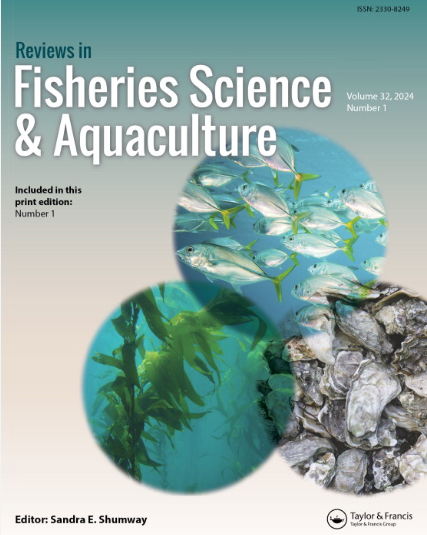Status and Management of Mixed Fisheries: A Global Synthesis
IF 5.3
1区 农林科学
Q1 FISHERIES
引用次数: 1
Abstract
Abstract Mixed fisheries occur when multiple species are caught together and harvested by multiple fleets. The biological and technical interactions in mixed fisheries distinguish them from single-species fisheries, which makes them challenging for their assessment and management. The present knowledge synthesis reviewed pertinent policy documents and academic databases for twenty-three mixed fisheries worldwide; aiming to characterize attributes of mixed fisheries, provide overviews on their assessment and management, assess current research progress, and identify key factors that impact management effectiveness. Mixed fisheries were found to exhibit varying characteristics worldwide, rendering the implementation of universal management solutions unlikely. While mixed fisheries stock assessment and management are mostly based on single-species approaches, additional mixed fisheries considerations were incorporated at various scales, including multispecies, sector-specific, fishery, and ecosystem levels. Ecosystem-wide management considerations were the most significant contributor to improved management performance in terms of conserving stock biomass and preventing overfishing, underscoring the merits of the Ecosystem-based Fisheries Management (EBFM) principle. Mixed fisheries research demonstrated regional and thematic variations, with the most popular topics addressing immediate and practical management concerns, and the less frequently discussed topics offering valuable insights related to climate change and socio-ecological perspectives. The synthesis identified the available management approaches for mixed fisheries from different jurisdictions, yet their diversity highlighted a lack of global consensus on best management practices. Future mixed fisheries will benefit from balancing tradeoffs between ecological and socio-economic needs, implementing EBFM, adopting diverse and harmonized management tools, and prioritizing monitoring efforts.混合渔业的现状和管理:全球综合
摘要当多个物种被多个船队一起捕获并捕捞时,就会发生混合渔业。混合渔业中的生物和技术相互作用使其区别于单一物种渔业,这使其评估和管理具有挑战性。本知识综述审查了全世界23个混合渔业的相关政策文件和学术数据库;旨在描述混合渔业的特征,概述其评估和管理,评估当前的研究进展,并确定影响管理有效性的关键因素。混合渔业在世界范围内表现出不同的特点,因此不太可能实施普遍的管理解决方案。虽然混合渔业种群评估和管理大多基于单一物种的方法,但在各种规模上纳入了额外的混合渔业考虑因素,包括多物种、特定部门、渔业和生态系统层面。全生态系统的管理考虑因素是在保护种群生物量和防止过度捕捞方面提高管理业绩的最重要因素,突出了基于生态系统的渔业管理原则的优点。混合渔业研究显示出区域和主题的差异,最受欢迎的主题涉及直接和实际的管理问题,而讨论频率较低的主题则提供了与气候变化和社会生态视角相关的宝贵见解。综合报告确定了不同管辖区的混合渔业的现有管理方法,但其多样性突出表明,全球对最佳管理做法缺乏共识。未来的混合渔业将受益于平衡生态和社会经济需求之间的权衡,实施EBFM,采用多样化和统一的管理工具,并优先考虑监测工作。
本文章由计算机程序翻译,如有差异,请以英文原文为准。
求助全文
约1分钟内获得全文
求助全文
来源期刊

Reviews in Fisheries Science & Aquaculture
FISHERIES-
CiteScore
25.20
自引率
0.90%
发文量
19
期刊介绍:
Reviews in Fisheries Science & Aquaculture provides an important forum for the publication of up-to-date reviews covering a broad range of subject areas including management, aquaculture, taxonomy, behavior, stock identification, genetics, nutrition, and physiology. Issues concerning finfish and aquatic invertebrates prized for their economic or recreational importance, their value as indicators of environmental health, or their natural beauty are addressed. An important resource that keeps you apprised of the latest changes in the field, each issue of Reviews in Fisheries Science & Aquaculture presents useful information to fisheries and aquaculture scientists in academia, state and federal natural resources agencies, and the private sector.
 求助内容:
求助内容: 应助结果提醒方式:
应助结果提醒方式:


